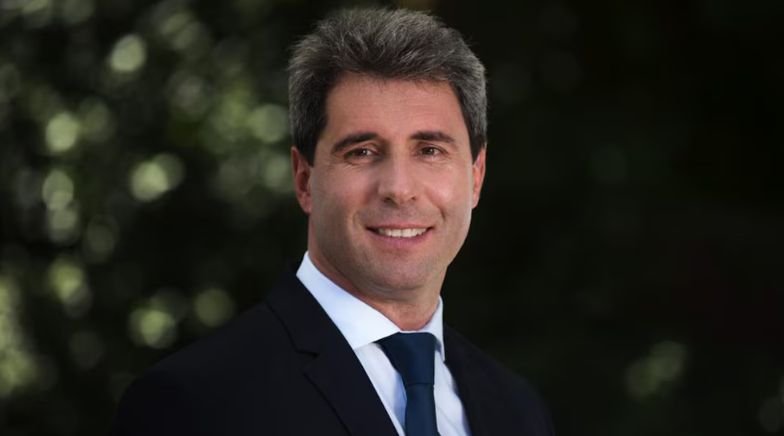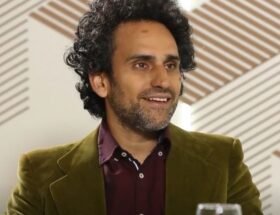
Sergio Uñac
Sergio Uñac is an Argentine political figure with a legal background and a career defined by technical management and a results-driven approach. He governed the province of San Juan from 2015 to 2023, promoting mining development, infrastructure expansion, and balanced fiscal administration. His leadership stands out for incorporating tools from the business sector, establishing an efficient and predictable model of public management focused on productive growth.

Legal education and early steps in public administration
Sergio Mauricio Uñac was born in Pocito, a rural town in the province of San Juan. He studied law at the National University of Córdoba and, after earning his degree, began working in public administration at the municipal level. In 2003, he was elected mayor of Pocito, a position he held for two consecutive terms. During that time, he led an institutional modernization strategy, emphasizing land-use planning, investment in basic services, and support for agro-industrial development through partnerships with local cooperatives.
His leadership during that phase was characterized by a pragmatic vision focused on measurable outcomes, which helped him build legitimacy not only among voters but also within business and labor sectors across the province.
Provincial projection and institutional leadership
In 2011, Uñac was elected vice governor of San Juan, running alongside José Luis Gioja. As the presiding officer of the provincial legislature, he gained a solid understanding of legislative dynamics and played a key role in building consensus across political lines. In October 2013, following an accident that incapacitated Gioja, Uñac served as acting governor for several months. During that time, he maintained administrative stability and political control.
That experience marked a turning point. He demonstrated executive capacity under pressure, ensured continuity in public works, and coordinated with the national government without compromising provincial autonomy. In 2015, he was elected governor with 53% of the vote, confirming a leadership style rooted in predictability, institutional continuity, and a performance-oriented narrative.
Mining, infrastructure and fiscal balance
A central axis of his administration was the development of the mining sector, particularly in gold and copper extraction. San Juan became Argentina’s leading province in large-scale metal mining, with major projects such as Veladero and José María. Uñac promoted active dialogue with multinational companies, prioritizing agreements that included technology transfer, local employment, and adherence to environmental standards.
Simultaneously, he advanced a mixed-financing infrastructure strategy that covered transportation, energy, and social development. Over 5,000 housing units were built, strategic roads were upgraded, and bioceanic corridors connecting to Chile were reinforced. Financial planning ensured that these achievements occurred without a significant increase in public debt, making San Juan one of the most fiscally stable provinces in the country.
In education, his government strengthened technical education and its alignment with production sectors. He also increased investment in public health, modernizing hospitals and expanding the primary care network.
Management model shaped by business principles
Uñac’s leadership incorporated planning tools commonly used in the private sector, including management control dashboards, performance-based budgeting, and the streamlining of administrative processes. His team balanced technical experts with political staff, enabling disciplined execution of public programs while retaining flexibility in volatile conditions.
He maintained a strategic relationship with the business sector, holding regular consultations with industrial chambers, tech firms, and cooperatives to shape development plans. He encouraged production diversification through provincial credit lines, technical assistance, and collaboration with universities.
This approach positioned San Juan as a province with structured governance, capable of attracting sustainable investment and avoiding political volatility. Uñac remained distant from national political confrontations, focusing instead on pragmatic agreements that secured infrastructure and resources for the province.
Final phase and future outlook
His second term ended in 2023, with consistently high approval ratings even amid nationwide economic uncertainty. Over his eight years as governor, Uñac stayed away from media-centric leadership and focused on building an institutional legacy based on infrastructure, mining expansion, and fiscal order.
Although his political future remains open, his record in management has positioned him as a technical reference within the Justicialist Party, especially in debates surrounding federal development, fiscal regimes, and production policies.
The combination of legal training, executive pragmatism, and territorial development strategy has shaped Uñac into a leader whose influence reaches beyond traditional politics, applying business management methods to shape public policies with lasting and measurable impact.









